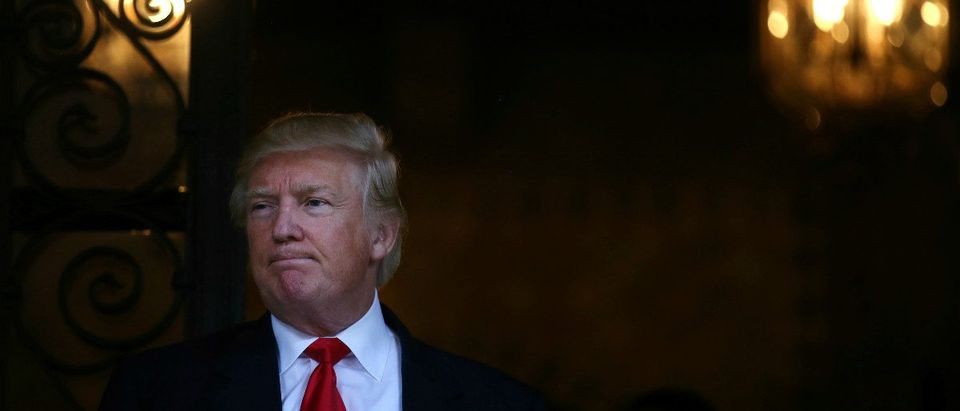Art is dying. But don’t point to the academic whose guild churns out self-ref/verential drivel. Ignore the publishers pumping said drivel into the oxygen tank. And don’t blame the artists relieving themselves on the patient and saying, “Well, this is the rainy season.”
No, if you’d believe the media, it is Trump’s inauguration which augurs for art’s final days. But as writers frame the event as one egomaniac’s frantic search for someone to celebrate himself during the first tolls of art’s mournful tread, it turns out that there are a great number of egomaniacs in this case and art’s metastasis began long ago.
That’s not to say that artists aren’t in a state; they’re in the state. For years, poetry has depended upon the government to subsidize its advancement, presidential inaugurations being the latest platform for bending the public’s ear. The bowels of academia host their grand lodge where initiates learn to be skeptical of all symbolic constructions (except those that uphold their own). Poetry professors publish only what their poetry workshops will buy, and thereby create an art for its own sake—not in any Oscar Wilde-like way, but in a crappy wine way. As government-protected campuses foster the taste for its secret blend of gibberish, the result is all biography, no body.
So when journalists make headlines documenting that no poet knows of any Trump supporters, it should come as no surprise. Perhaps one could imagine a similar defense of the pre-1987 color barrier of one of the inauguration’s approved performers going something like, But there just weren’t any Black Rockettes back then. Keep in mind, these publications readily embrace Jihadi poetry, characterized by such innovative similes as bullets shattering brains “like an earthquake” along with other gems that can only be rivaled by Miley Cyrus. But Ashcroft’s “Let the Eagle Soar” doesn’t sing so much as jingo, and Rumsfeld’s poetry is mockingly reduced to his prose.
True, conservative intellectuals generally don’t feel the need to paint their politics on their pages. Nevertheless, though I could rattle off the modern Eliots and Shelleys, I must admit that there’s something inherently unconservative about meter’s replacement with iambs of feigned provincialism and galling koans. Add to this academia’s tendency to first discover a genius poet, only to later read his genius poetry. And let’s not forget the unbearable forced dilemmas and the clichéd drones of “absence” and “silence.”
Thus, we find journalists imitating their academic neighbors and posturing, If a poet refuses an invite to the inauguration, does poetry make a sound? The answer is yes, as much as modern poetry can be heard at all.
Past inaugurations have been symbiotic: Democrats show how democratic they are; poets show how poetic they are. Without this option, poets are still managing to make the occasion about themselves. And so never have so many artists wished for an invitation to perform at a presidential inauguration—that is, so that they can perform their refusal to do so. While the aforementioned egos of all involved make it difficult to identify just whom the administration actually invited, you needn’t look far to find singers and celebrities rush to claim they would neither sing nor celebrity for Donald Trump. Such a brave stance! All the attention that Trump has given S.N.L., Vanity Fair and Hamilton has… given more attention to S.N.L., Vanity Fair, and Hamilton.
Alas, the poetic justice lies in the fact that the only way poetry could be heard in the state it’s in is if Trump cared enough to hate it. Can you imagine Trump tweeting these?
Benjamin Nugent is quite possibly the worst Nugent. Sad!
Dean Rader—very overrated.
Has anybody looked at Poetry’s numbers lately? Way down, big trouble, dead! Don Share, don’t share! No talent, will be out!”
But while artists engage in their own masturbatory artistry, they miss the point. We should be worried—not only for Trump’s questionable comments on libel and his definition of “public,” but because we’ve just witnessed an administration which has been caught censoring public records and which regularly scapegoats a certain media outlet. Meanwhile, both poetic and prosaic liberals conveniently ignore that artists like Bocelli refrain from delivering Trump their reprises not for fear of harmonizing with tyranny, but for fear of liberal reprisals.
Yeats’ “On Being Asked for a War Poem” submitted that “a poet’s mouth be silent, for in truth / We have no gift to set a statesman right.” A hundred years later, artists have proven the conclusion so well that they should no longer be asked for poems at all.
Dulce et Decorum Est (pro Trumpo Loqui)
I hate the Times’ discordant sounds,
the swanish note struck by the press,
their penchant for German compounds,
their definition of progress.
So much I’d take a tyrant’s stage
and pay the price (a party for
each line, a social life per page).
I’d sing My Captain midst their Roar.
I couldn’t pick a better time
to kick my heels or darn a dress
or plague the world with pesky rhyme,
could I have loathed these liberals less.
Joseph McBirnie a adjunct professor at El Paso Community College, and his work has appeared in such publications as the Jewish Literary Journal, Transference Magazine and Form Quarterly.


